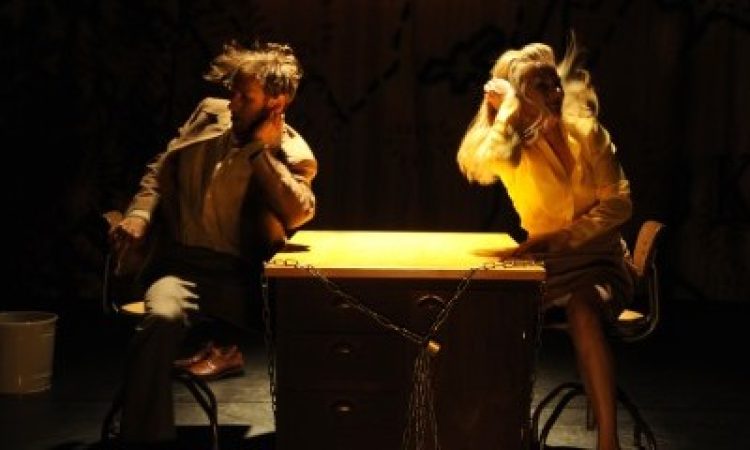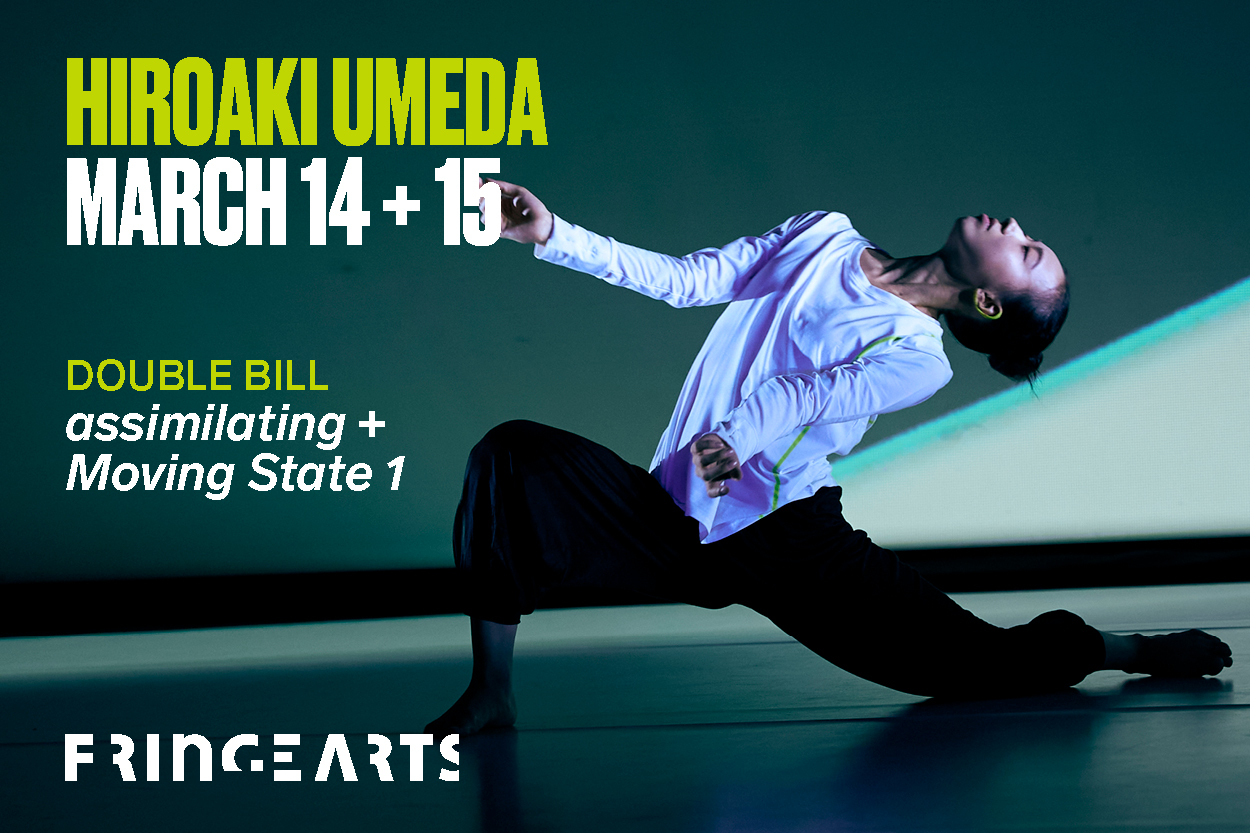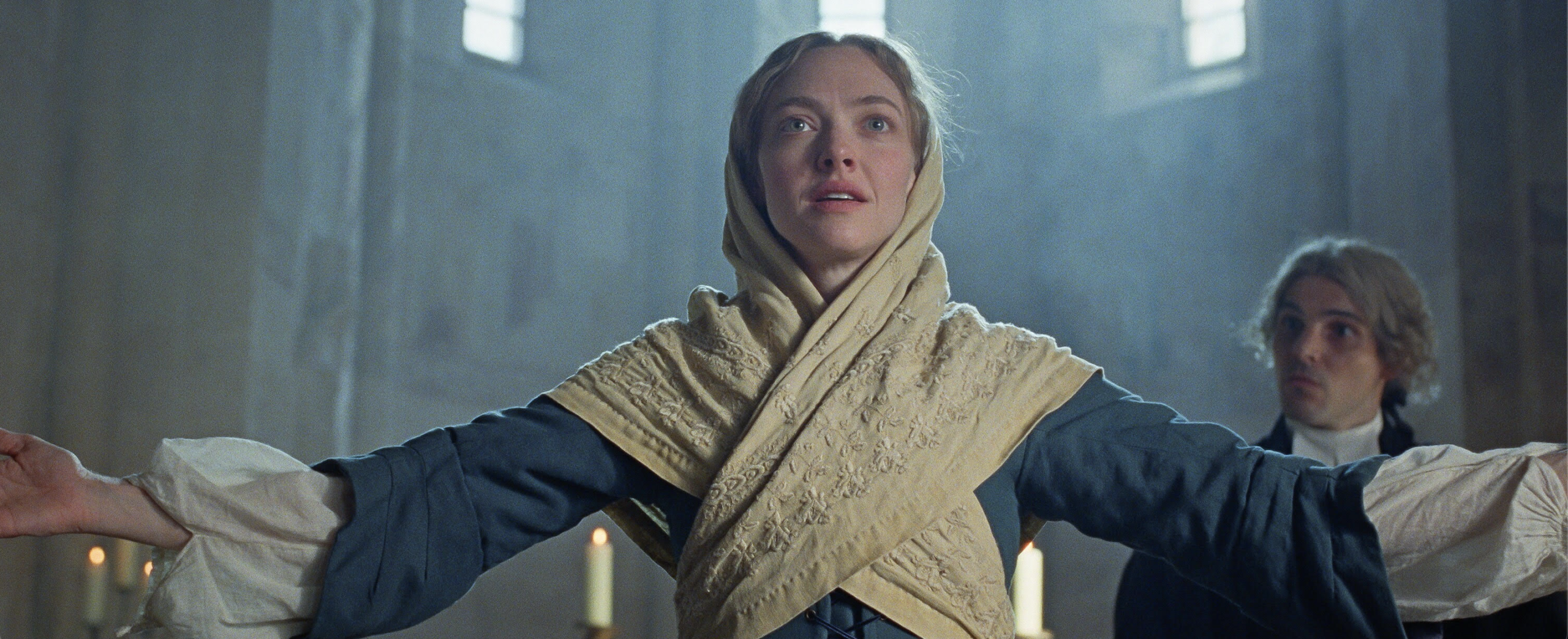On Friday night, thINKingDANCE held its second Write Back atcha event, gathering in the lobby/green room of FringeArts to talk about Jo Strømgren Kompani’s evening length duet. The Border—an intriguing theatre and dance amalgamation replete with a fable-like script wrought in voiceover form—brought to mind the quirk and gentle melancholy of a Wes Anderson film. The gift of a doily late in the performance (and the understanding that small gestures of notice and acceptance can move one more than grander displays) underscored the heart of this piece… a meditation on both how difficult—and just how simple—it can be to reach across what divides us.
With added insight offered by tD’s own Carolyn Merritt (an anthropologist by training), the conversation and writing that followed the show had us grappling with several questions about what borders the piece was traversing, and whether the back-and-forth between the fully committed performers in the end brought us to a new place or gave us an increased understanding of the liminal spaces we share (if imperfectly).
Here is an incomplete record of our discussion, highlighting the intellectual curiosity and wordsmithery of a few members of the Fringe audience/community:
The Border is an exploration of the lines drawn between many binaries—among them man/woman, East/West, rich/poor—giving us a glimpse of what it means to negotiate, and sometimes transcend, profound differences. The piece takes us… to the border between two office workers, Harold (Ivar Sverrisson) and Jilana (Ida Holten Worsøe), who don’t share a language but nevertheless establish a relationship.
-Karl Surkan
Frustrated and angered by [each] other and by their own personal feelings which are yet to be revealed to the other, borders are broken down by attraction and desire. The office is a setting that strongly represses personal involvements.
-Donna Hunt
Set: office, ruined office, train, diner.
Sexy Russians or Norwegians—I don’t discriminate.
Too many naked white guys…or not enough?
Could have used one of those step-on-a-rake-get-hit-in-the-face moments.
Great use of bear trap.
Interpretation: bored in life but interested in each other.
-Kelsey Borrel
A careful, deliberate man is fixed in an office at the border. The office is shared with an impetuous woman representing the other. Believing in the superiority of rhetoric, he types her a letter. Instead of responding in prose, she shreds the letter with feminine fanfare.
-Chris Deephouse
Harold was told that life was a party. Jilana was told that life was hell. Harold’s childhood was long. Jilana’s childhood was short. Both of these characters come to this border town with a different set of experiences and expectations. Somehow through love and attraction they find a commonality in language and culture through movement.
-Roxanne Lyst
Indulgence vs. restraint
Immediate needs vs. general needs (specifically I’m thinking of the need to have sex with this person RIGHT NOW…versus the need for a job and to follow the rules in order to make a living).
Fuck you vs. I love you.
-Nick Ware
The Border shows the duality between these two characters in many layers… Topics such as attraction vs. rejection, rational vs. primitive urges, are as predominant as the difference in the spoken languages. [The work] allows us to see how complicated human interactions can be [and] the borders that divide us in our everyday life.
-anonymous
Childlike belief gives way to adult complication. Built on innocence and pithy phrases repeated by parents, our body’s voice repeats and builds more… barricades, booby traps, and bombs. These two bodies intertwine fantasy and reality. Caught and exposed, touching gently and moving through chaos, abandonment, and finally surrender.
-Janna Meiring
He’s whipping wads of white paper out of his pocket. They wick, wisp, and sail to the floor in a scatter. She slides, slips, slinks her legs in circles, leading his gaze to graze her bottom as she goes. Over. And down.
-anonymous
When the mind seems in charge-control
and the past, cold—old.
Language dead:
action speaks.
A gift of acceptance
bold as Love
seals wounds like skin glue
and keeps sweaty cups from making rings.
-Misha Kaschock
A man and a woman, divided by language. One seems wild—she lets her hair down. She provokes with her legs, gesturing out as her skirt gets ever-higher. He is more restrained. His stated long childhood seems actually not possible. To me, it seems he might never have had one at all. Their passion gets wild but it’s always missing something. It’s often one-sided. She gives him her underwear; he refuses/is repulsed by it. Water becomes a gesture of good will, “good”—a word they share.
-Kristen Shahverdian
The Border, Jo Strømgren Kompani, FringeArts, September 9-12.






